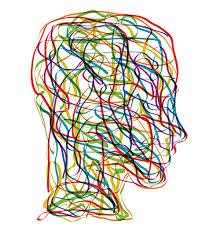From an open-source research article in 2022:

 www.dovepress.com
www.dovepress.com
"Comorbid diagnoses are perhaps the strongest link connecting OCD and SI [suicidal ideation]. Lifetime psychiatric comorbidities are present in around 70% of individuals with OCD, with the most common diagnoses consisting of mood and anxiety disorders. The greater the severity of the comorbid disorder, the greater the likelihood of experiencing SI. This remains true even after controlling for severity of OCD."
"DBT has also been suggested as an effective tool for SI in OCD. Within the DBT framework, SI reflects a severe form of invalidation. Treatment combines common cognitive-behavioral strategies with additional focus on distress tolerance, mindfulness, acceptance, and emotion regulation. These skills prioritize SI as a primary treatment target and can simultaneously target prominent risk factors in OCD such as unacceptable thoughts. Additionally, functional analytic psychotherapy (FAP) can more specifically target emotional components tied to SI, as well as bolster individual’s interpersonal skills and social support. Presence of SI may alter the general therapeutic approach to OCD and recruit additional methods to ensure patient safety."
"Although effective treatments for both SI and OCD exist, the intersection of these two experiences is vastly understudied. Nuances of SI in OCD are not adequately captured by the current body of evidence. While SI may respond in a similar manner across psychiatric diagnoses, exploring unique features of SI within OCD is important for the development of effective treatment targets and interventions."

Suicidal ideation and obsessive-compulsive disorder | PRBM
Individuals with previous SI or SA, history of childhood trauma, significant life stress, psychiatric comorbidities, should be monitored & screened for SI.
"Comorbid diagnoses are perhaps the strongest link connecting OCD and SI [suicidal ideation]. Lifetime psychiatric comorbidities are present in around 70% of individuals with OCD, with the most common diagnoses consisting of mood and anxiety disorders. The greater the severity of the comorbid disorder, the greater the likelihood of experiencing SI. This remains true even after controlling for severity of OCD."
"DBT has also been suggested as an effective tool for SI in OCD. Within the DBT framework, SI reflects a severe form of invalidation. Treatment combines common cognitive-behavioral strategies with additional focus on distress tolerance, mindfulness, acceptance, and emotion regulation. These skills prioritize SI as a primary treatment target and can simultaneously target prominent risk factors in OCD such as unacceptable thoughts. Additionally, functional analytic psychotherapy (FAP) can more specifically target emotional components tied to SI, as well as bolster individual’s interpersonal skills and social support. Presence of SI may alter the general therapeutic approach to OCD and recruit additional methods to ensure patient safety."
"Although effective treatments for both SI and OCD exist, the intersection of these two experiences is vastly understudied. Nuances of SI in OCD are not adequately captured by the current body of evidence. While SI may respond in a similar manner across psychiatric diagnoses, exploring unique features of SI within OCD is important for the development of effective treatment targets and interventions."

